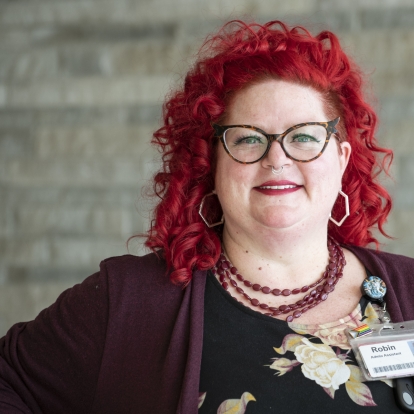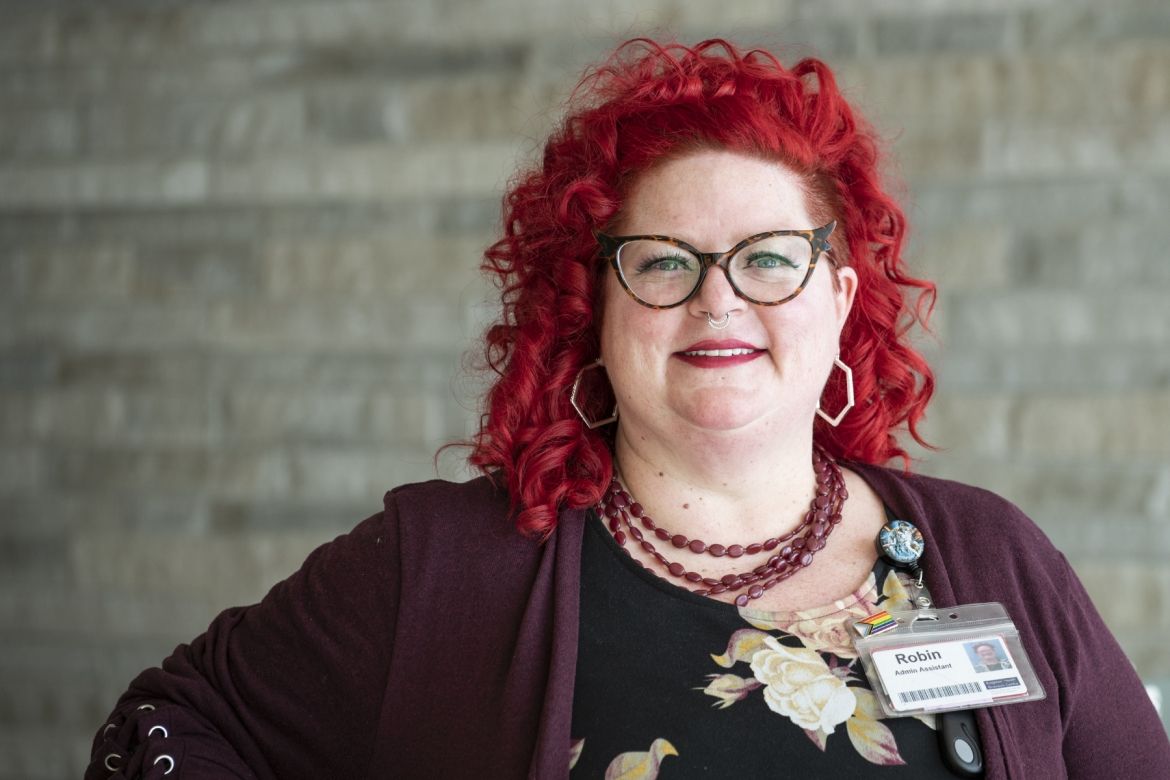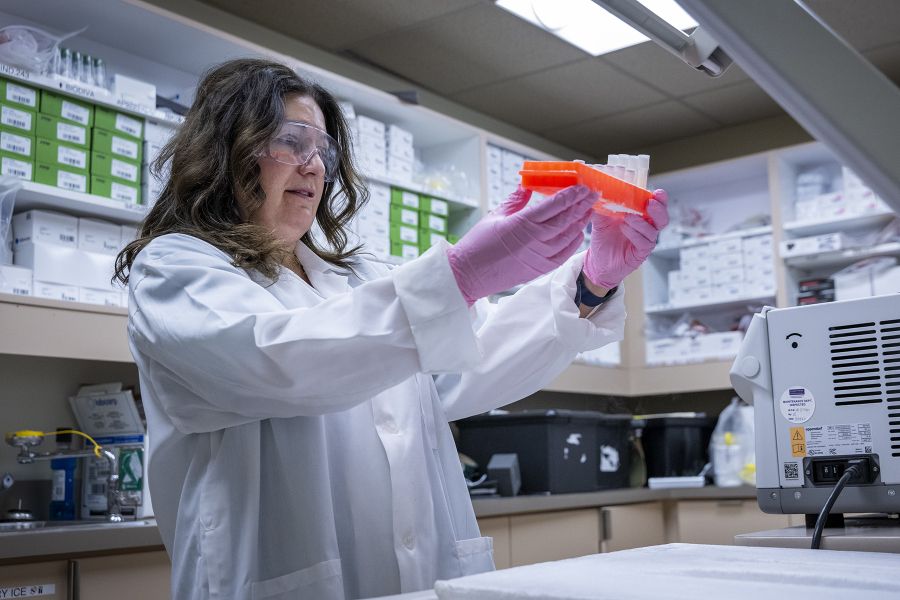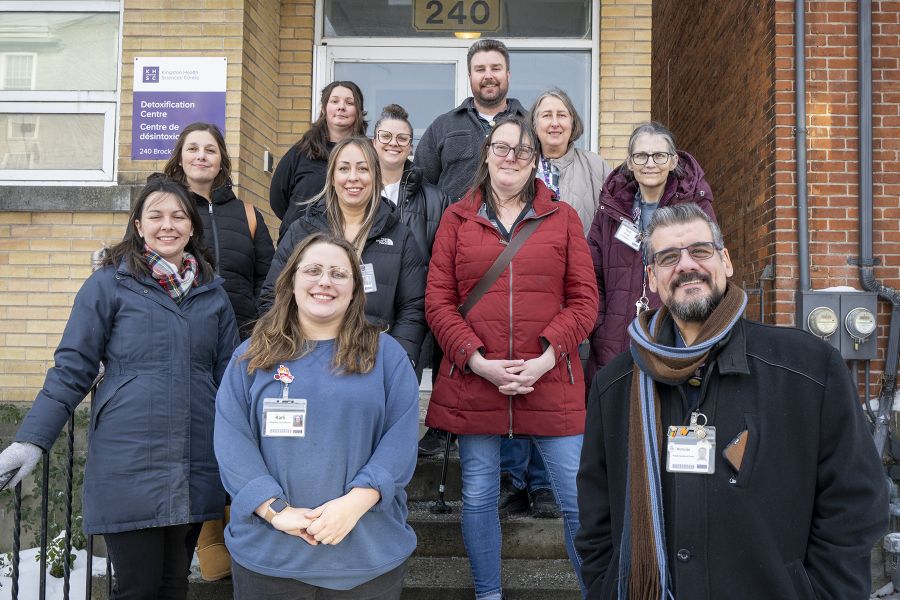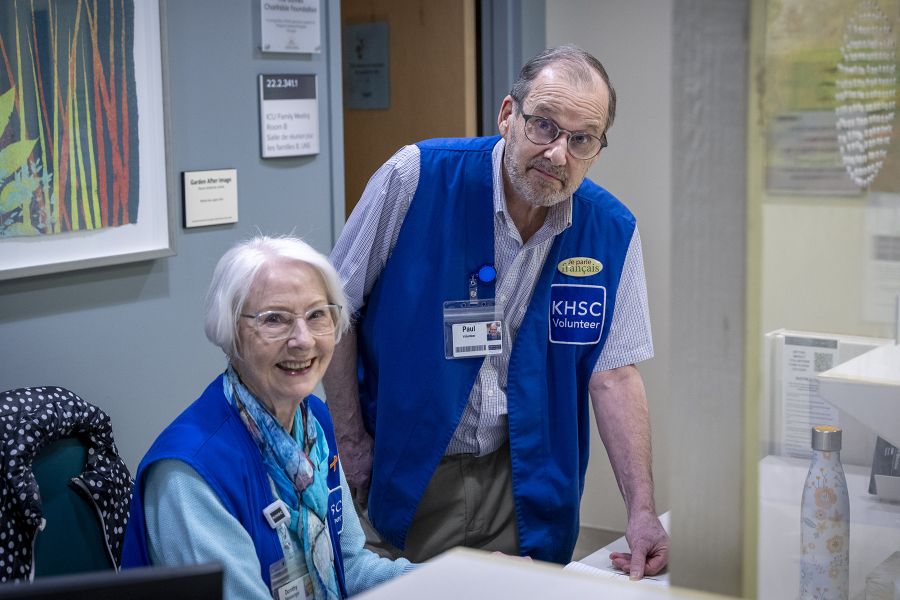Effective immediately masking is required for everyone when present on all inpatient units, in the Emergency Department (ED), the Urgent Care Centre (UCC), and the Children’s Outpatient Centre (COPC).
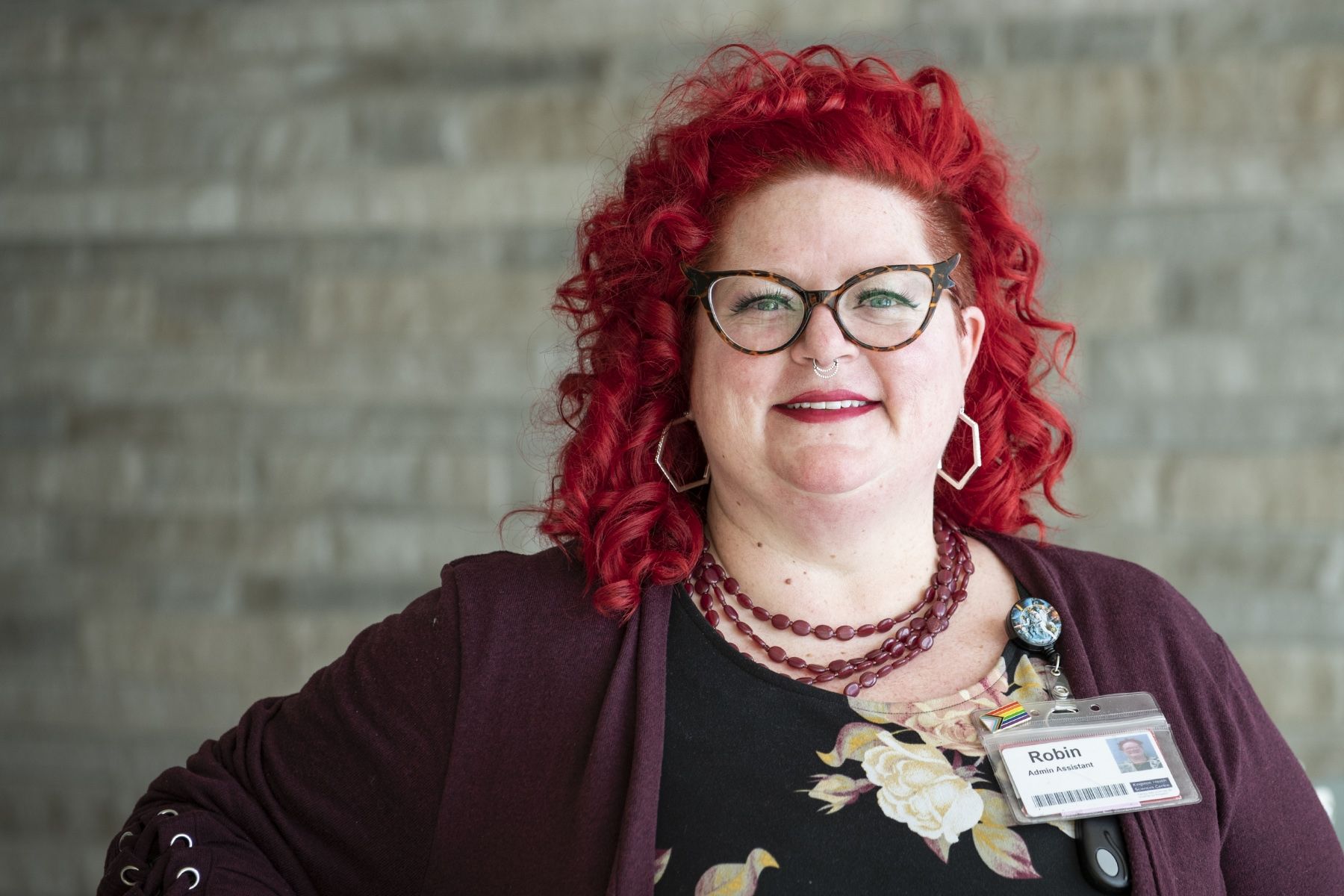
Robin Robertson never thought she would end up “on the other side” of her addiction and mental health issues. Now 12 years sober and recently hired as the administrative assistant for the Mental Health and Addictions Care (MHAC) program at Kingston Health Sciences Centre, she is bent on removing one big hurdle that challenges anyone taking that same journey: stigma.
“I believe that there are a great deal of pre-conceived notions about people dealing with mental health and addiction issues. I think that we believe that it’s only the people that are outwardly suffering, only the people living on the street, publicly intoxicated or having an episode of psychosis.
“In addition to those harsh realities, it can be anyone. Mental health issues and addictions don’t discriminate. They affect all of us, regardless of socio-economic status, gender or age.”
“Stigma happens when we make snap judgements about people that just aren’t accurate. We’re not always aware that we’re judging. We need to get in the habit of thinking about the person as a human, as someone’s child. No one wakes up in the morning and decides to be mentally ill or an addict.
“I think putting a human face on that suffering is how we start talking more about the impact of stigma.”
These days Robin is making that conversation happen through the Stand up to Stigma: Let’s Talk Mental Health campaign, a hospital and community-wide project anchored by regular webinars, an online auction to raise funds to reduce stigma in the community and special events like the Blues Cart that swung through hospital units in the dreary winter months to give staff the chance to talk about Seasonal Affective Disorder. Helping to helm the cart was Robin, decked out in a brilliant blue tutu and unmistakable with her flaming cherry-red hair and signature funky glasses.
“I think health care workers have a huge responsibility in giving patients living with mental illness and addiction the respect they deserve. I can remember a nurse I met as teen with a bipolar diagnosis. She gave me the extra time and compassion I needed right then. Over time, people like that have given me a chance and hope. That also happens when you do things like use a patient’s preferred pronouns or queer-friendly language. With Indigenous patients, it means honouring their spiritual and cultural traditions.
“The best medication for stigma is kindness and compassion. It’s about one person helping one person. We all have that power, and we can use it to open doors for others.”

